Tanis, a once-majestic city in Egypt’s Nile Delta, served as a royal capital during the 21st and 22nd dynasties. Famed for its grand temples, sacred lakes, and richly adorned royal tombs, it rivaled the Valley of the Kings. Initially mistaken for other ancient cities, modern archaeology confirmed its distinct identity. Tanis gained global fame through film and its role in deciphering hieroglyphs. Ongoing excavations and satellite discoveries continue to uncover the hidden wonders of this ancient city.
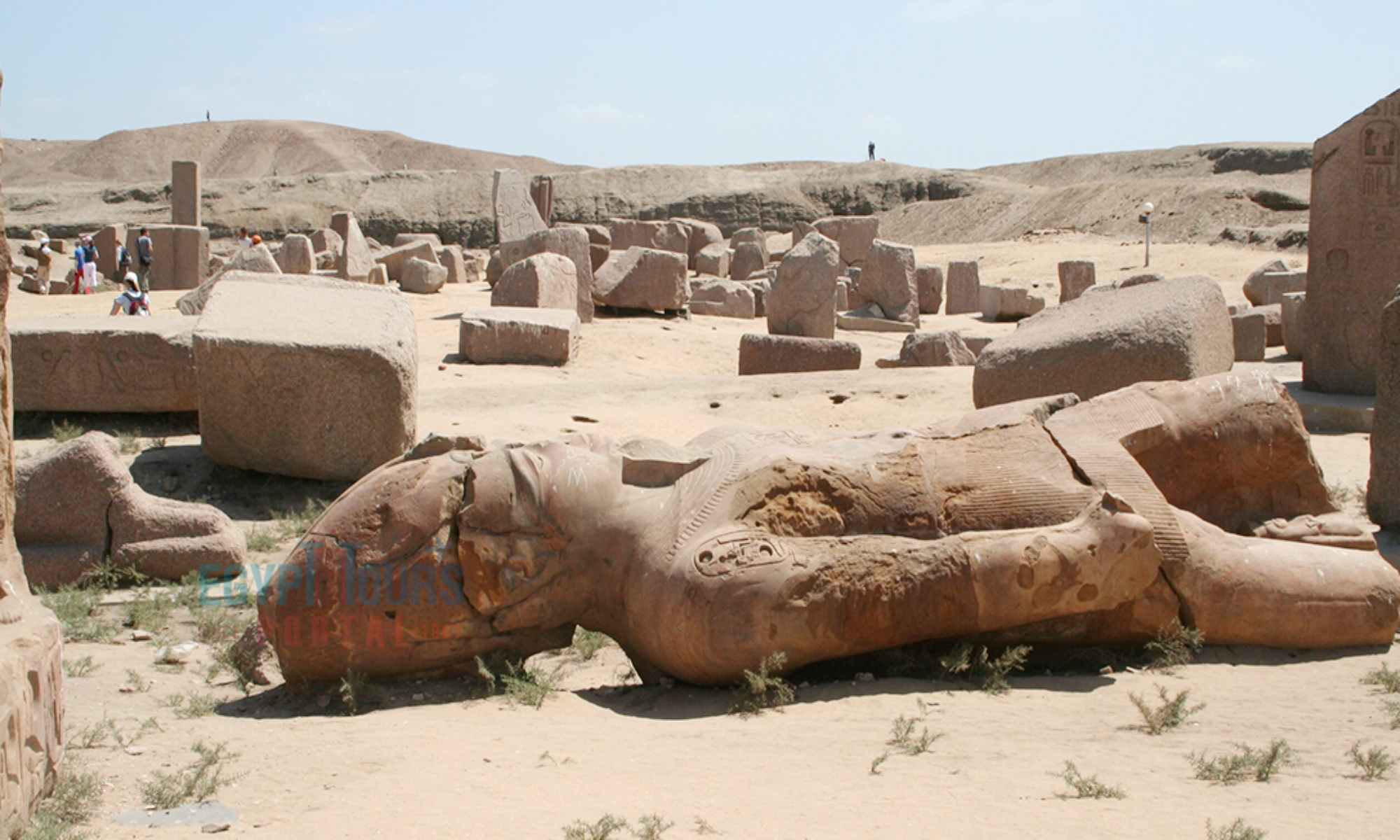
The lost city of Tanis has captured the imagination of travelers and archaeologists from every corner of the world for many ages due to the intriguing legends and tales that revolve around some of the most magnificent treasures and artifacts that are mentioned in the holy books like the ark of the covenant that was portrayed in the Indiana Jones movie "Raiders of the Lost Ark." The golden hidden city of tanis throughout the centuries remains mostly buried in sands where many great figures of history like napoleon who attempted to uncover its secrets and wealth to the entire world.
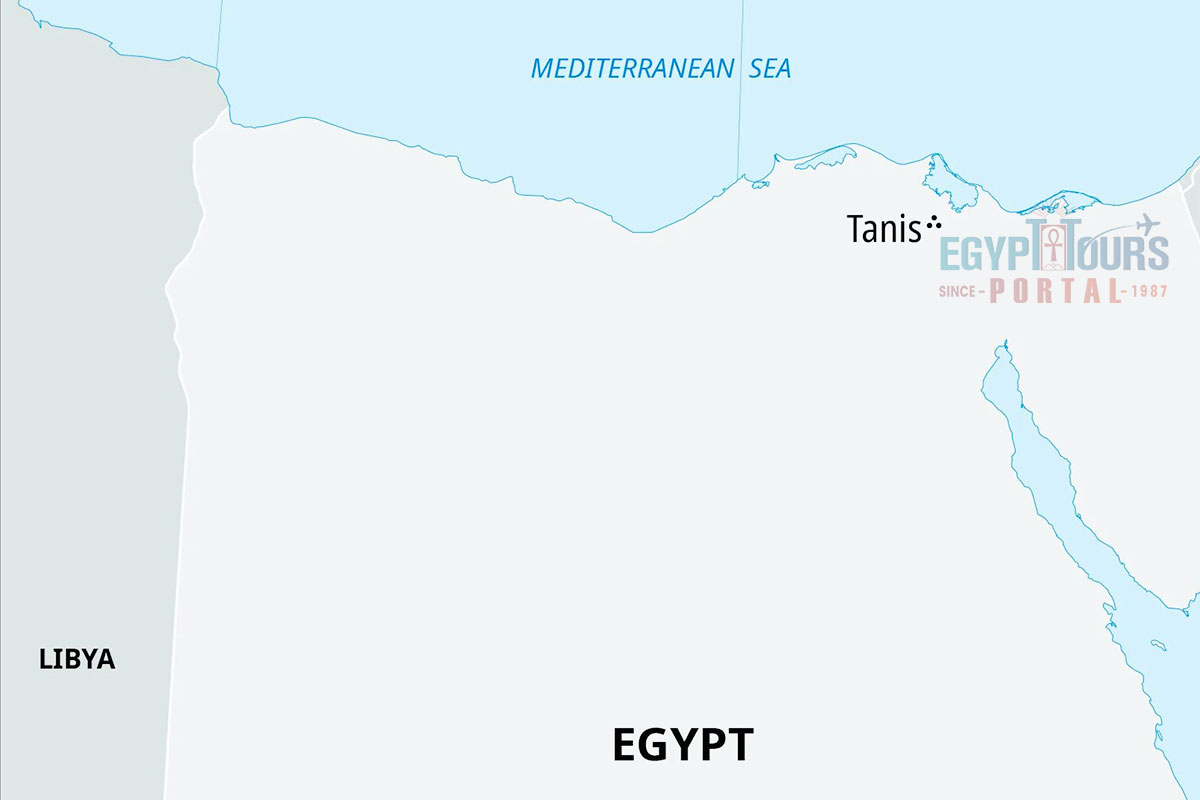
Tanis, also known as San al-Hagar, stands as a remarkable archaeological site nestled in the northeastern Nile Delta of Egypt. It is a nahiyah in the district of Arine in the Sharqia Governorate, This city bore in ancient Egypt the Greek designation of "ḏꜥn. It nestled on the Tanitic sector of the Nile River, which made it gradually succumb to silt blockages over time. The distance from Cairo to Tanis is approximately 103 miles, with a 2-hour and 50-minute drive. Guided tours from Cairo are also available, offering historical insights into the hieroglyphs found in Tanis.
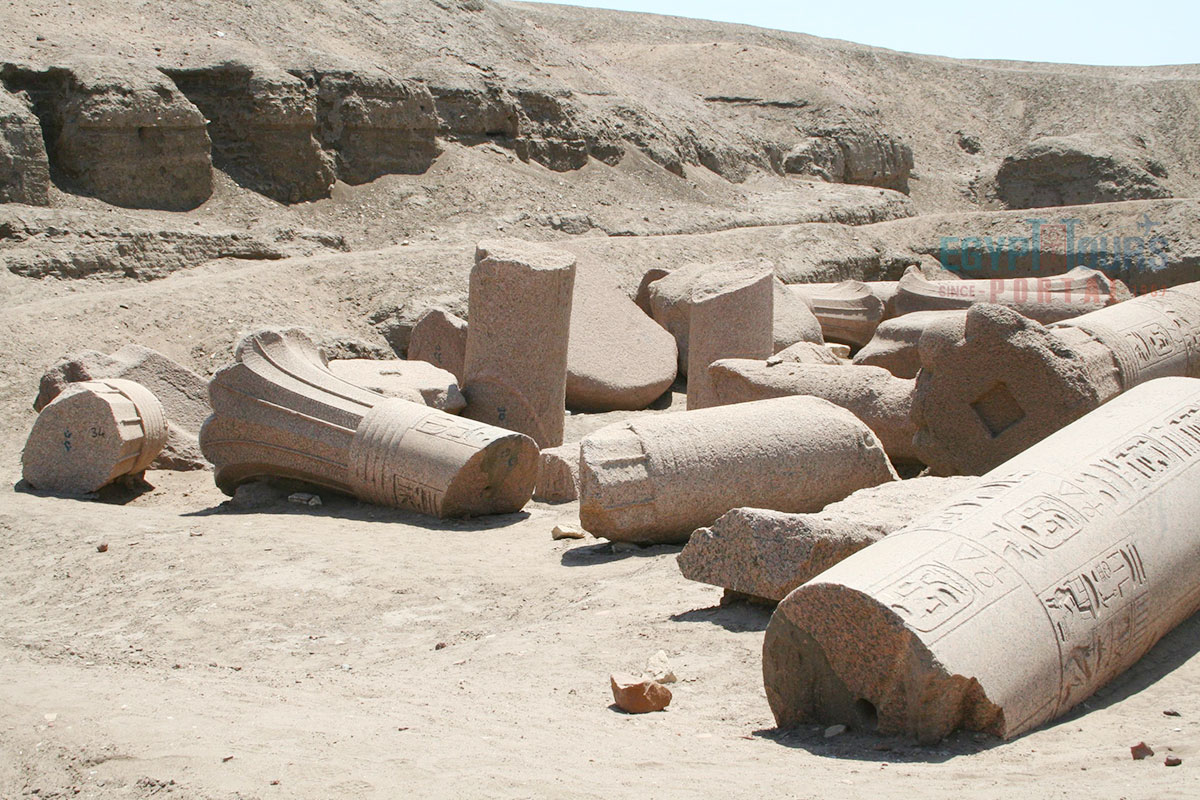
Tanis dates back to the Nineteenth Dynasty of Egypt ( 1292 - 1189 BC) when it served as the main capital of the Fourteenth nome in Lower Egypt. There are temples that carry inscriptions from the time of Ramesses II mentioning the field of Tanis. It is also mentioned in two 20th dynasty (1189 - 1077 BC) documents called the Story of Wenamun and the Onomasticon of Amenope that show a connection to the future Pharaoh Smendes.
The city's earliest known buildings can be traced back to the 21st Dynasty, but many of its monuments were relocated from nearby Pi-Ramesses. The decline of Pi-Ramesses was attributed to changes in the Nile's Pelusiac branch, rendering its harbor unusable, which led to Tanis becoming the new Headquarters of power for the 21st and 22nd Dynasties, albeit with a less grandiose scale compared to the New Kingdom (1570 - 1050 BC).
Noteworthy achievements during this time include the construction and expansion of the Grand Temple of Amun-Ra, as well as the establishment of minor temples, which are the worship houses of Khonsu and Mut. These efforts were part of an intentional emulation of Thebes, with the gods bearing their authenticated Theban mythical titles. Even the majestic royal necropolis found at Tanis began to rival the famed Golden Valley of the Kings in Thebes.
Tanis decreased its royal residence status after the 22nd Dynasty but continued as the main capital of the Nineteenth nome of Lower Egypt. During the 30th Dynasty, Tanis witnessed another phase of the development of buildings, which extended into the Ptolemaic Period (350 - 30 BC). It remained inhabited until its eventual abandonment during Roman times.
Tanis later served as the power center of the bishops of Tanis under the authority of the Coptic Orthodox Church. By the 7th century, Tanis had experienced a significant decline, being grouped with 4 other close towns to be a city that could not be qualified.
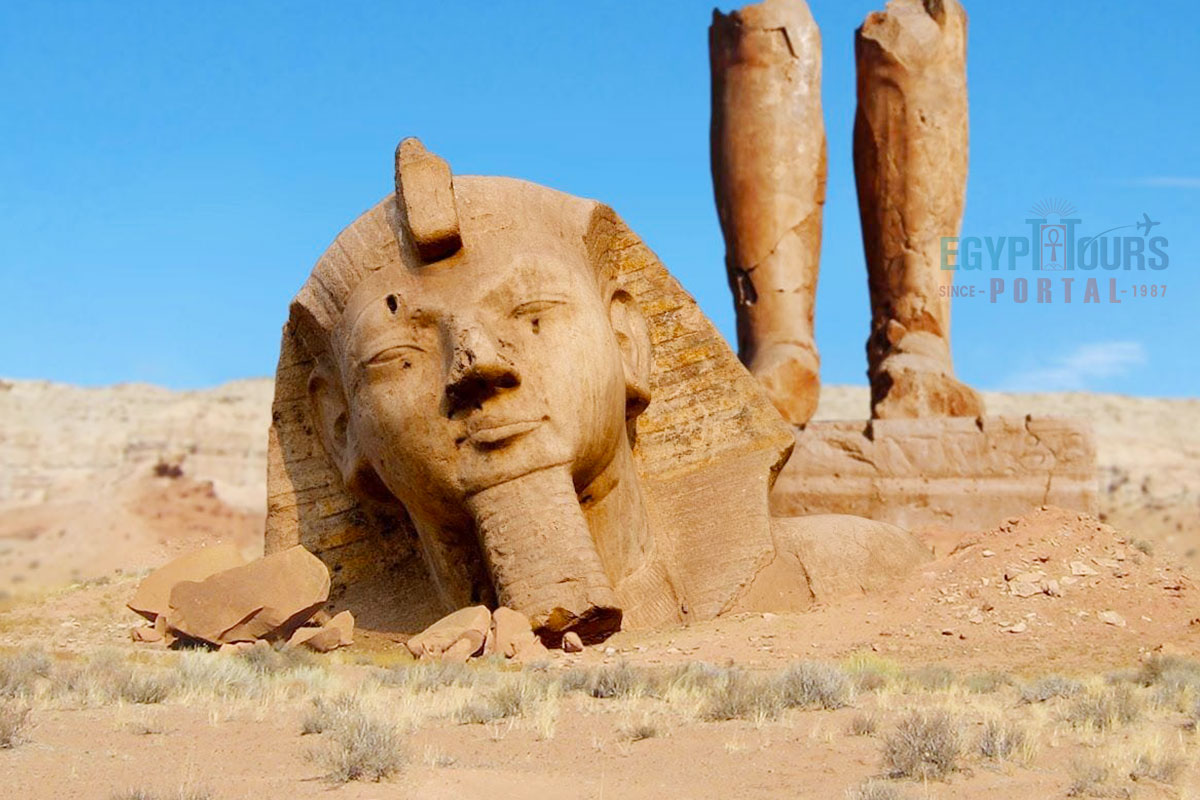
The historical significance of Tanis, an ancient Egyptian city, became prominent during the 19th century when it underwent extensive archaeological exploration. Auguste Mariette initiated these excavations, and in 1866, a crucial discovery was made, which is called the Canopus Decree. Unlike the earlier Rosetta Stone, this inscription contained Greek and Egyptian text, facilitating a direct main comparison and validating Jean-François Champollion's hieroglyph deciphering approach.
Over the 20th century, French archaeologists, including Pierre Montet, Jean Yoyotte, and Philippe Brissaud, conducted multiple excavation campaigns in Tanis. The profusion of monuments carrying the names of great pharaohs, who are Merenptah or Ramesses II led to misconceptions that Tanis and Pi-Ramesses are the same older Hyksos capital. Subsequently, the rediscovery of some very important cities known as Pi-Ramesses (Qantir) and Avaris (Tell el-Dab'a) clarified this misidentification, which revealed that Tanis housed incredible monuments which was relocated from other cities.
Tanis is renowned for its archaeological treasures, like marvelous temples dedicated to the creator god Amun and a royal necropolis from the Third Intermediate Period. This necropolis uniquely preserves several very intact burials of royal pharaonic burials of great kings which including Amenemope, Psusennes I, and Shoshenq II, which were found by Pierre Montet in 1939 and 1940. These tombs yielded a wealth of treasures, including jewelry, gold, lapis lazuli, and spectacular funerary masks of famous and powerful Pharaohs.
Amun, Mut, and Khonsu were the main gods and goddesses of Tanis, forming a triad akin to Thebes. Notably, Tanis is sometimes referred to as " The Northern Thebes" due to this similarity. In 2009, archaeologists discovered a well-preserved sacred lake in Mut's Temple at the glorious temple of Tanis, suggesting its construction during the final days of the 25th–early days of the 26th Dynasty. Furthermore, advanced satellite imagery analysis in 2011 uncovered extensive mud-brick structures, streets, and residences, revealing a comprehensive city plan beneath the surface. However, claims of 17 pyramids were contested.
Witness all the magical ancient cities of Egypt that stood the test of time
Read More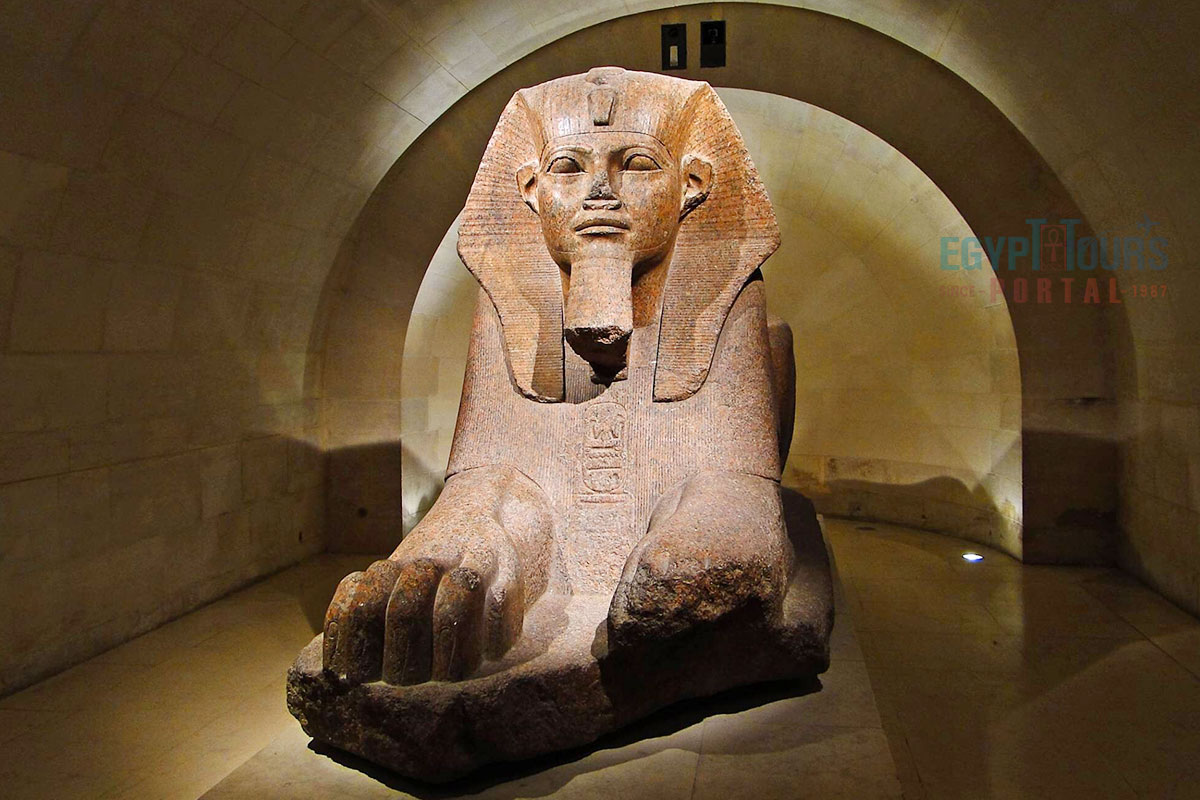
Space archaeologist Sarah Parcak 2010 utilized remote-sensing satellites that orbit 435 miles above Earth to reveal the secrets of Tanis. Collaborating with a French team, she employed infrared images to map the entire city, including its buildings, streets, and suburbs, uncovering buried structures, tombs, and settlements. Parcak's groundbreaking technology allowed her to bring the ancient city to life on screen, offering intricate details of the largest and most continuously occupied capital city in the history of Ancient Egypt.

Tanis holds cultural significance to its role in hieroglyph decipherment and its cinematic legacy, as it gained fame as a fictitious lost city in the 1981 film "Raiders of the Lost Ark." The city's name also graces the significant Tanis fossil site is associated with the Cretaceous–Paleogene extinction event.
The legacy and heritage of the legendary city of Tanis are still alive and hold the power to shed light on some magnificent facts and tales about one of the oldest and biggest capital cities in ancient Egypt. The mystery of Tanis is never-ending, so make sure to put it on your travel bucket list so you can get the chance to cast your eyes on a number of the greatest monuments ever made.
Our esteemed travelers will enjoy the most bewitching Egypt vacations and the finest Nile cruises while exploring all the immortal ancient cities of this golden civilization.
Private 4 Days Cairo Tour Packages for New Zealander Travelers 4 days Cairo Egypt To...
Tour Location: Cairo – Giza...
5 Days Cairo and Alexandria Tour Package For New Zealander Travelers 5 days Cairo an...
Tour Location: Cairo/Giza/Alexandria...
6 Days Cairo, Luxor & Aswan Tour Package For New Zealander Travelers 6 days Cair...
Tour Location: Cairo/Giza/Aswan/Luxor...
Amazing 7 Days Cairo and Hurghada Holiday for New Zealander Travelers 7 Days Cairo &...
Tour Location: Cairo – Giza – Hurgh...
The entire country of Egypt deserve to be explored with its every heavenly detail but there are places that must be seen before any other such as the breathtaking Hurghada's red sea, The wonders of Cairo the pyramids of Giza, the great sphinx, the Egyptian Museum, Khan El Khalili Bazaar, the wonders of Luxor like Valley of the Kings, Karnak & Hatshepsut temple and the wonders of Aswan such as Abu Simbel temples, Philea temple, Unfinished obelisk and The Wonders of Alexandria like Qaitbat Citadel, Pompey's Pillar and Alexandria Library. Read more about the best places to visit in Egypt.
If you want to apply for a Visa On Arrival that lasts for 30 days then you should be one of the eligible countries, have a valid passport with at least 6 months remaining and pay 25$ USD in cash, as for the E-Visa for 30 day you should have a valid passport for at least 8 months, complete the online application, pay the e-visa fee then print the e-visa to later be presented to the airport border guard. You could also be one of the lucky ones who can obtain a free visa for 90 days. Read more about Egypt travel visa.
Egypt has a variety of delicious cuisines but we recommend “Ful & Ta’meya (Fava Beans and Falafel)”, Mulukhiya, “Koshary”, a traditional Egyptian pasta dish, and Kebab & Kofta, the Egyptian traditional meat dish.
The best time to travel to Egypt is during the winter from September to April as the climate becomes a little tropical accompanied by a magical atmosphere of warm weather with a winter breeze. You will be notified in the week of your trip if the Climate is unsafe and if any changes have been made.
You should pack everything you could ever need in a small bag so you could move easily between your destinations.
We have been creating the finest vacations for more than 20 years around the most majestic destinations in Egypt. Our staff consists of the best operators, guides and drivers who dedicate all of their time & effort to make you have the perfect vacation. All of our tours are customized by Travel, Financial & Time consultants to fit your every possible need during your vacation. It doesn't go without saying that your safety and comfort are our main priority and all of our resources will be directed to provide the finest atmosphere until you return home.
You will feel safe in Egypt as the current atmosphere of the country is quite peaceful after the government took powerful measures like restructuring the entire tourist police to include all the important and tourist attractions in Egypt. Read more about is it safe to travel to Egypt.
Wear whatever feels right and comfortable. It is advised to wear something light and comfortable footwear like a closed-toe shoe to sustain the terrain of Egypt. Put on sun block during your time in Egypt in the summer to protect yourself from the sun.
The best activity is by far boarding a Nile Cruise between Luxor and Aswan or Vise Versa. Witness the beauty of Egypt from a hot balloon or a plane and try all the delicious Egyptian cuisines and drinks plus shopping in old Cairo. Explore the allure and wonders of the red sea in the magical city resorts of Egypt like Hurghada and many more by diving and snorkeling in the marine life or Hurghada. Behold the mesmerizing western desert by a safari trip under the heavenly Egyptian skies.
There are a lot of public holidays in Egypt too many to count either religious or nation, the most important festivals are the holy month of Ramadan which ends with Eid Al Fitr, Christmas and new years eve. Read more about festivals & publich holidays in Egypt.
Egypt is considered to be one of the most liberal Islamic countries but it has become a little bit conservative in the last couple of decades so it is advised to avoid showing your chest, shoulders or legs below the knees.
Arabic is the official language and Most Egyptians, who live in the cities, speak or understand English or at least some English words or phrases. Fewer Egyptians can speak French, Italian, Spanish, and German. Professional tour guides, who work in the tourism sector, are equipped to handle visitors who cannot speak Arabic and they will speak enough English and other languages to fulfill the needs of all our clients.
The fastest way is a car, of course, a taxi. If you are in Cairo ride a white taxi to move faster or you could board the fastest way of transportation in Egypt metro if the roads are in rush hour.
The temperature in Egypt ranges from 37c to 14 c. Summer in Egypt is somehow hot but sometimes it becomes cold at night and winter is cool and mild. The average of low temperatures vary from 9.5 °C in the wintertime to 23 °C in the summertime and the average high temperatures vary from 17 °C in the wintertime to 32 °C in the summertime. The temperature is moderate all along the coasts.
It is the home of everything a traveler might be looking for from amazing historical sites dating to more than 4000 years to enchanting city resorts & beaches. You will live the vacation you deserve as Egypt has everything you could possibly imagine.









